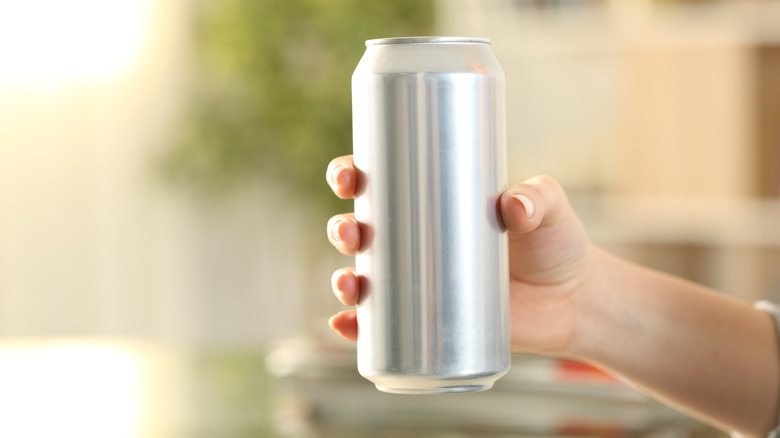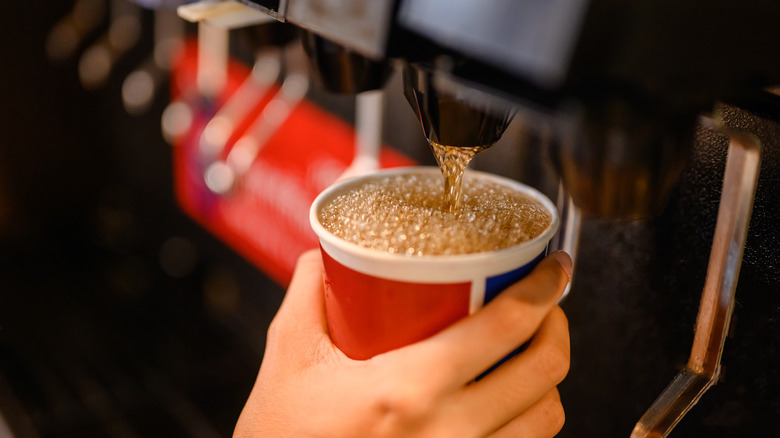The Truth About What's Really In Soda
Soda is a popular drink that many people enjoy every day. However, it's no secret that soda isn't the healthiest beverage. So what's really inside this drink that makes it something you should only enjoy in moderation? According to Eat This, Not That!, soda is mostly made from carbonated water. Carbonated water is actually something with no potential health issues involved, other than possible bloating and gas. It's the next most common ingredient that you need to worry about, which is high-fructose corn syrup. This sugar substitute has played a large role in America's obesity epidemic and is something that should be consumed sparingly.
The American Heart Association recommends that women consume no more than six teaspoons of added sugar per day and men consume no more than nine teaspoons (via Center for Science in the Public Interest). However, a 20-ounce bottle of soda often contains about 16 teaspoons of high-fructose corn syrup, which is double the recommended daily intake. While it's okay to enjoy regular soda in moderation, it's best to stick to diet versions that are naturally sweetened if you want to drink it regularly.
Other ingredients to watch out for in soda
The remaining ingredients you'll find in a typical can of soda make up only a small percentage of the drink. However, it's always smart to be aware of all the ingredients in the foods and drinks that you're consuming. Other common ingredients in soda include caffeine and natural flavoring (via Eat This, Not That!). Most sodas don't contain huge amounts of caffeine, but this stimulant can still make you feel more energized and cause side effects like anxiety and restlessness (via WebMD). Natural flavoring is a broad term that can be anything from vanilla to cocoa extract.
With all of this in mind, is soda bad for you? When consumed regularly, many health experts agree that this drink is not going to offer any health benefits (via Medical News Today). The biggest problem with soda is its sugar content. If you can find healthier low-sugar alternatives, like diet soda or flavored carbonated water, this drink becomes significantly less risky.


